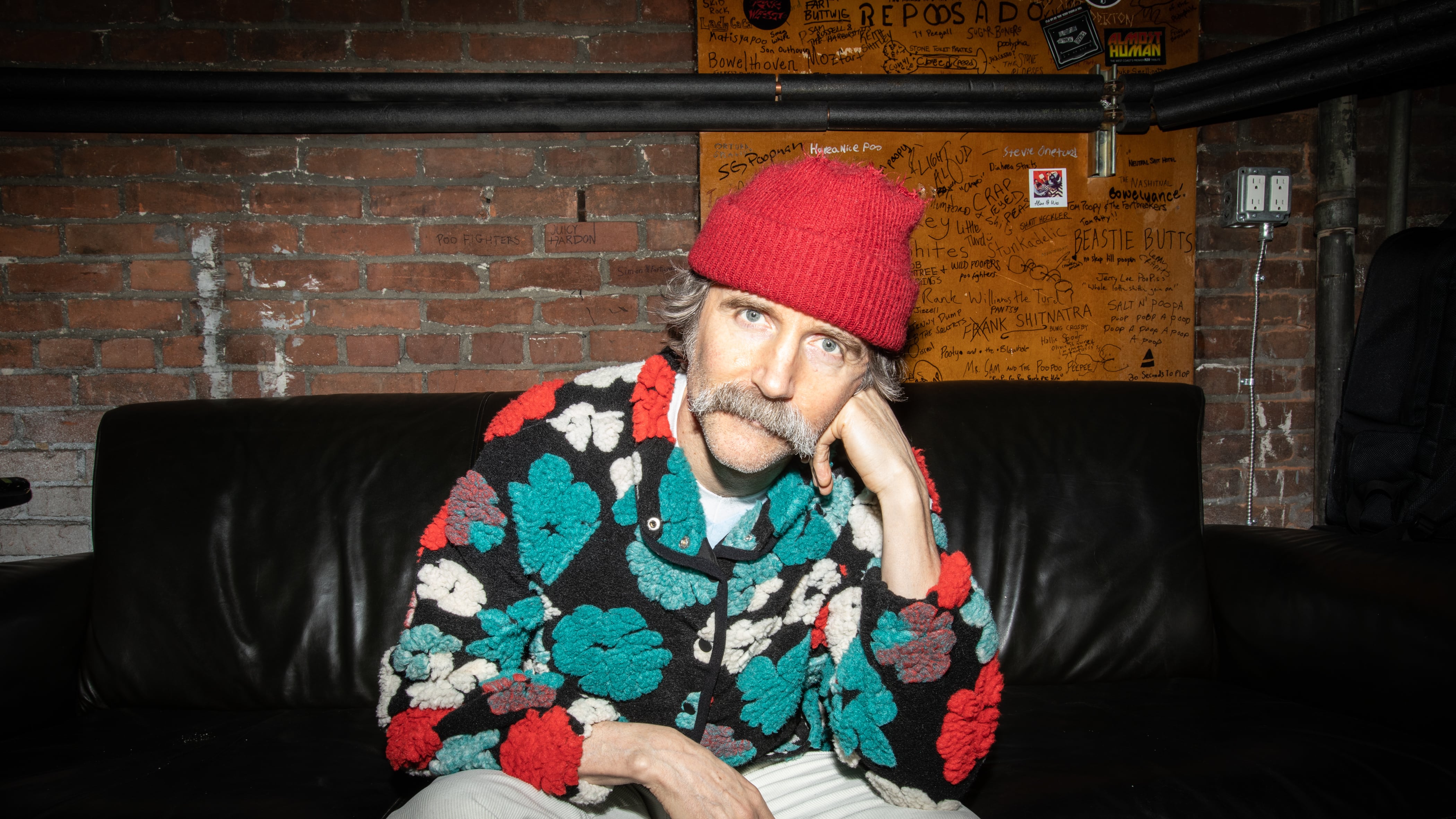Dean Johnson has fond memories of Portland. It was here, during Pickathon in 2024, that the rising Seattle folk troubadour played two of his most memorable sets. First at the woods stage, and then the main stage with a backdrop of Mount Hood and a sunset to make for the kind of majestic Western scene that would inspire Albert Bierstadt. At each of these sets, the enraptured audience swooning over Johnson’s dreamy folk seemed to signal that his moment had, finally, arrived.
Soft-spoken and ever-humble, Johnson likes to reflect on his little victories. “I really did enjoy that,” he says. “That was quite a gift that the festival gave me. Portland is probably my best [city] to draw a big crowd and have an outstanding listening audience.”
In 2023, at age 50, after many years working as a bartender at the legendary dive Al’s in Seattle’s Wallingford neighborhood and playing in country band Sons of Rainier, Johnson released his solo debut, Nothing for Me, Please on Portland label Mama Bird Recording Co. The songs on that album captured a talented songwriter uniquely attuned to those little social interactions many of us don’t even think about as we go about our day. His lyrics were brimming with richly vivid imagery of the West and the kind of conversational character studies that could transpire in bars and coffee shops and around campsites. For anyone paying close attention, Nothing for Me, Please inspired the kind of “where has this guy been all my life?” moment that many music lovers chase like that first high.
Besides being home to his first record’s label, Portland is also “home to some of the best live audiences I’ve ever played to,” Johnson says.
The mustachioed artist isn’t just saying that. This was one of the first places where he gained a buzz, and Johnson enlisted Portland musicians to back him at various shows in the Rose City. At Pickathon and subsequent performances around town, Johnson had the audience in the palm of his hand. The reception of those performances foreshadowed his sudden rise to the spotlight and may have caught the attention of Elyse Lankford, project manager at esteemed indie label Saddle Creek, which just released Johnson’s highly anticipated sophomore album, I Hope We Can Still Be Friends on Aug. 22.
“She shared it with her boss…it snowballed from there,” Johnson says.
Across its 11 tracks, Johnson expands on the worlds he conjured on Nothing for Me, Please, but with lyrical storytelling that captures his evolution as an artist and an almost journalistic observer of life. I Hope We Can Still Be Friends is the kind of album that makes you immediately want to throw it on vinyl and sink into a plush couch to let it embrace you like a warm cup of tea. Johnson’s tranquil, occasionally ethereal voice is in fine form as he sings songs full of what he describes as “division, estrangement, and unpleasant endings.”
While his songs often sound like they came naturally after some sort of chance encounter, Johnson often works on them over many years as he works out phrasing and mines the psyche of the characters who inhabit his strangely beautiful and occasionally humorous world. The sensibilities and characters living within I Hope We Can Still Be Friends should resonate with bar culture in places like Portland and Seattle, where winter nights are often spent quietly conversing over a drink in a warm, dimly lit pub and summer is spent mingling and pursuing relationships that can lead to jubilation, heartbreak, or both in the span of an evening.
Besides his time tending bar and dealing with the energy vampires that inhabit his tune “Death of the Party,” much of Johnson’s incubation and formative years came from being part of a community of musicians that has transformed the Pacific Northwest into a hot spot for folk, Americana, and alt-country. In this scene that includes acts like Margo Cilker, Anna Tivel, John Craigie, and Kassi Valazza, Johnson connected with drummer, singer, and producer Sera Cahoone.
“The Pacific Northwest has always had a strong arts and music scene across many genres, and folk and Americana really thrive here,” Cahoone says. “I think it’s a mix of the natural beauty, the introspective vibe of the region, as well as a supportive and creative community. Seattle and Portland, in particular, have some incredible country pickers.”
After a period of mutual support and admiration, Johnson and Cahoone hit it off and decided to work together. She produced the album and can also be heard throughout on drums and backing vocals, giving the songs room to breathe while bringing a sense of rhythm.
“His storytelling is unmatched, and I’ve always loved the humor woven into his songs. It’s rare to achieve something so musically beautiful while being that sharp and witty,” Cahoone says.
It may have taken Johnson a long time to get to us, but we should be grateful he is here. The world needs his cozy and thoughtful folk. Between the new album and touring, 2025 is also shaping up to be Johnson’s biggest and most successful year yet. In his modest fashion, Johnson has a good attitude toward it all as he heads for what may be his largest Portland show to date when he opens for Gregory Alan Isakov at the 7,000-capacity Edgefield on Sept. 7.
He sums up this relatively newfound life of travel and constantly performing in the most Dean Johnson way possible: “I’m getting better at airports, I’ll tell you that much. That’s one thing.”
SEE IT: Gregory Alan Isakov with Dean Johnson at McMenamins Edgefield, 2126 SW Halsey St., Troutdale, 503-669-8610, edgefieldconcerts.com. 6:30 pm Sunday, Sept. 7. $65.50. All ages.

